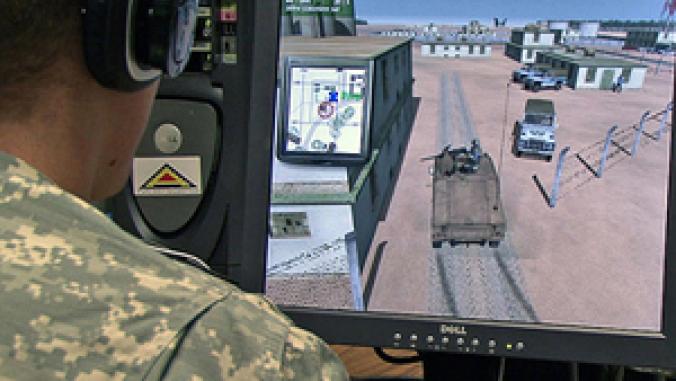Nike's Sustainability Report Takes Top Ceres-ACCA Award
<p>Nike won for Best Sustainability Report today in the Ceres-ACCA North American Awards for Sustainability Reporting, followed by first runner-up American Electric Power. Anvil Knitwear and SAP rounded out the honors.</p>

What does it take to earn kudos for your corporate sustainability report?
Just ask Nike: In its most recent corporate responsibility report, readers heard directly from CEO Mark Parker about how the company's sustainability strategy has evolved. The report also effectively communicated the link between Nike's sustainability and business strategies, how the company engages stakeholders, and the ways in which its Board of Directors provides sustainability oversight. The report didn't shy away from discussing challenges and lessons learned from mistakes along the way, either.

These factors and others earned the company top honors today in the Ceres-ACCA (Association of Chartered Certified Accountants) North American Awards for Sustainability Reporting. Nike won for Best Sustainability Report, followed by first runner-up American Electric Power (AEP). Anvil Knitwear and SAP AG were also recognized for best first-time report and innovative use of web and social media, respectively.
"Nike's report describes how it is shifting to a more sustainable business model and recognizes that sustainability is a path to profitability," said CERES director Jack Ehnes.
Ehnes, who is also CEO of the California State Teachers' Retirement System (CalSTERS), presented the awards on the opening day of the 2011 Ceres Conference taking place through Thursday in Oakland. Ninety-eight reports were submitted for the awards program, which has recognized best practices on sustainability disclosure for the past 10 years. The awards are not meant to endorse company performance.
In an eloquent acceptance speech, Hannah Jones, Nike's vice president of sustainable business and innovation, described how the report served to show its sustainability journey to its stakeholders but has also strengthened business strategies and enhanced value. Reporting on its sustainability performance forces the company to think about how it operates, she said.
"In any journey, having a rear view mirror as well as a clear view to the road ahead is pretty fundamental," Jones told conference attendees. "Reporting is an important forcing mechanism for that -- and the standards required by Ceres and friends, demands a rigor to our accountability that makes us stronger, better, wiser and certainly more conscious of our mistakes, and the opportunities still to be met."
In the realm of sustainability reporting lies accelerators of change and innovation, Jones said. Transparency has become the new inevitability for businesses, but underlying that transparency is data, which in turn can trigger innovation. At some point, Jones said she believes we will abandon the language of "sustainability reporting" in favor of "value creation."
"How will sustainability reporting make that leap -- from environmental and social impact reporting into value reporting?" Jones said. "How will mainstream financial reporting become the vehicle through which corporations WANT to talk about their investments in clean tech, in new innovation, as part of their growth strategy?"
Dennis Welch, executive vice president of environment, safety & health and facilities at first runner-Up AEP, told the audience in accepting the award that his company's report has become a critical business tool for the electric power generator: "It's become a guiding light. It's part of what we do."
In his remarks, Welch took the opportunity to address the "elephant in the room" -- a controversial bill the company has drafted that would delay some air quality regulations from the U.S. Environmental Protection Agency. AEP is the largest user of coal in the Western Hemisphere, Welch said, noting that the company has reduced its emissions by 80 percent over the last 20 years.
"I want to make it clear -- and people can believe it or not believe it -- we are not trying to gut the Clean Air Act ... We need a little more time, not just AEP, the industry needs to address dealing with 50,000 megawatts (MW) to 70,000 MW of coal generation and turning that into more environmentally responsible" generation.
Ceres and ACCA gave business software firm SAP an award for its innovative use of web and social media, marking a dramatic journey for a company that only produced its first sustainability report in late 2008. The online-only report includes video, customizable data charts, and interactive features that allow readers to comment on every page. Moving to an all-web format increased readership from 2,500 to 50,000 in three years, according to SAP Chief Sustainability Officer Peter Graf.
Anvil Knitwear, a B2B-focused apparel manufacturer and recipient of an award for best first-time reporter, found that producing a sustainability report made the company better equipped to deal with resource challenges, such as water use, and also better positioned to seize sustainability-related opportunities, according to Caterina Conti, the company's chief administrative officer, executive vice president and general counsel.
"It just raised so many issues, we discovered so much more information than we could have ever assumed," she said. "We thought it was just a CSR initiative but it became a critical tool" for several departments, such as engineering and finance.
The near-100 reports submitted for the competition revealed several noteworthy trends, Ceres and ACCA noted. Among the developments:
• Each of 17 companies short-listed for the awards used the Global Reporting Initiative for their reports.
• 98 percent of the reports submitted had an online component, with just a few submitting any printed copy, which signaled to the judges the "death of the hard copt report." Key features that enhance online disclosure include easy navigation, access from the home page, build-your-own data function, and what the judges called "a balance between substance and web experience."
• 85 percent of reports explored how companies are engaging their stakeholders, demonstrating the practice is now "the norm." Companies such as Duke Energy, Campbell Soup and Spectra Energy are increasingly including maps identifying key groups, but few actually say how feedback is solicited and used.





